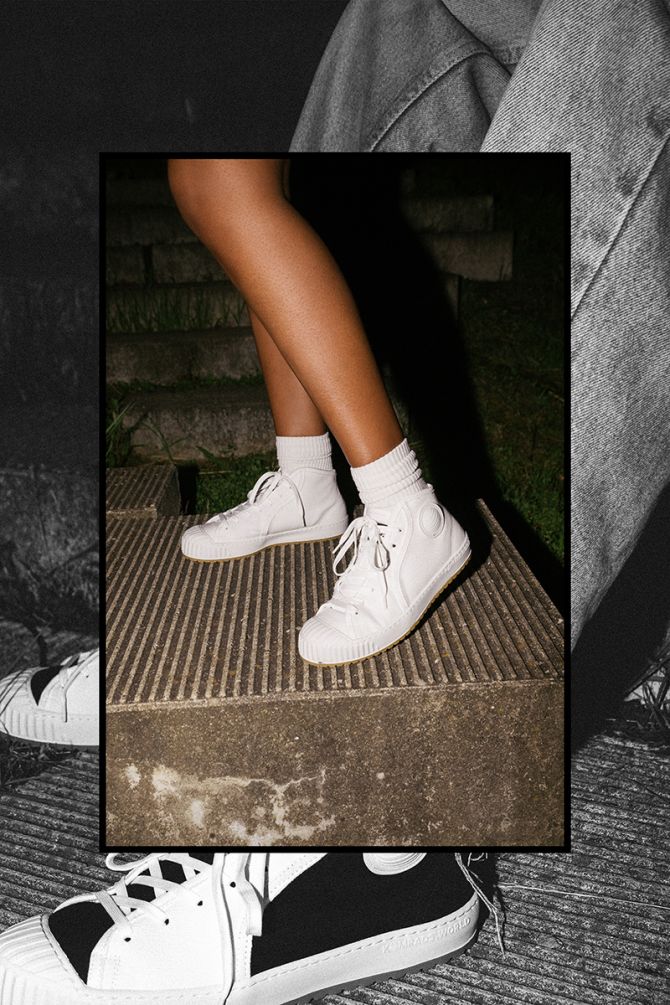Komrads
Since its foundation in 2015, Belgian sneaker brand Komrads has been putting its best foot forward to keep its carbon footprint to an absolute minimum (that’s a lot of ‘foot’ for one sentence, right?). Sustainable materials are high on the label’s list of favourite things, because right from the get-go, Komrads founders and real-life partners Greet Goegebuer and Mark Vandevelde pledged to make a sneaker that is 100% recycled. That was a first for Belgium.
To make true on their promise, Goegebuer and Vandevelde work with apple leather, which consists at least of 50% apple skins and cores discarded by the apple juice industry. Together with the universities of Hasselt and Utrecht, the duo is considering their options to increase that percentage, without compromising on quality. Besides the APLS collection, for which apple leather is the star ingredient, Komrads is also known for their ICNS sneakers. The soles of the latter type of shoe are made from recycled rubber (either from car tyres or the soles of other shoes) and coloured with organic paint. The ICNS insoles, in turn, are breathable thanks to their recycled polyurethane foam base, which has active carbon as its key component. The lining and laces, finally, are discarded pet bottles in disguise, or recycled cotton. Even the glue is organic. Animal materials are a no-go, which earned Komrads the PETA-approved stamp.
Komrads gets a kick out of innovation and optimisation; not only material-wise, but as regards production and shipping, too. Their sneakers travel in FSC-certified cardboard boxes produced in Portugal, for instance. The shoes themselves, too, see the light of day in Portugal, in a factory that guarantees proper working conditions and fair wages. In fact, its AENOR-certificate testifies to the fact that the Komrads factory offers high-quality products without making environmental sacrifices. Quite the contrary, as the production plant runs entirely on green energy. The Komrads designers make sure to source their materials close to the production site to avoid transportation excesses.
And things don’t even end there. Komrads is planning to give customers a chance to return their old sneakers, so they can be dismantled and recycled. Moreover, there’s a third collection in the pipeline, and it will be made from plastic waste fished from the Mediterranean Sea and the Atlantic Ocean. Cheers to that!
